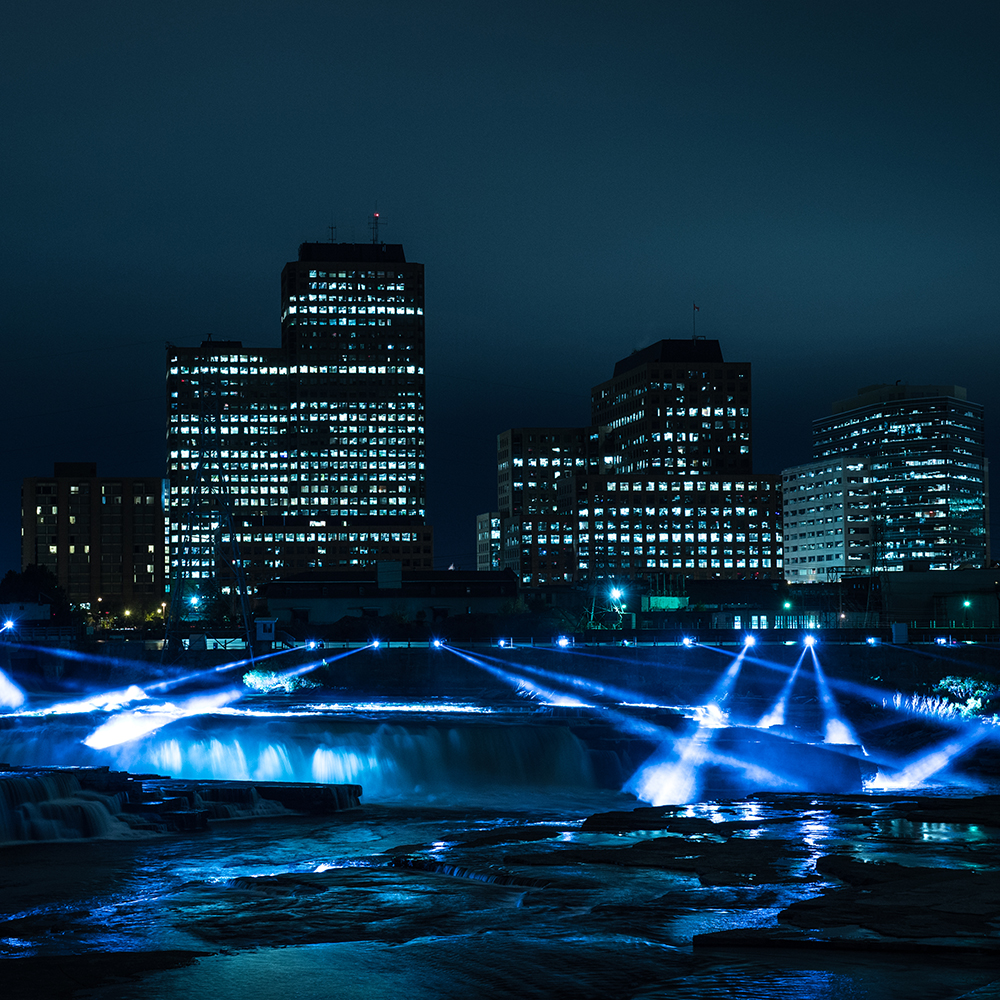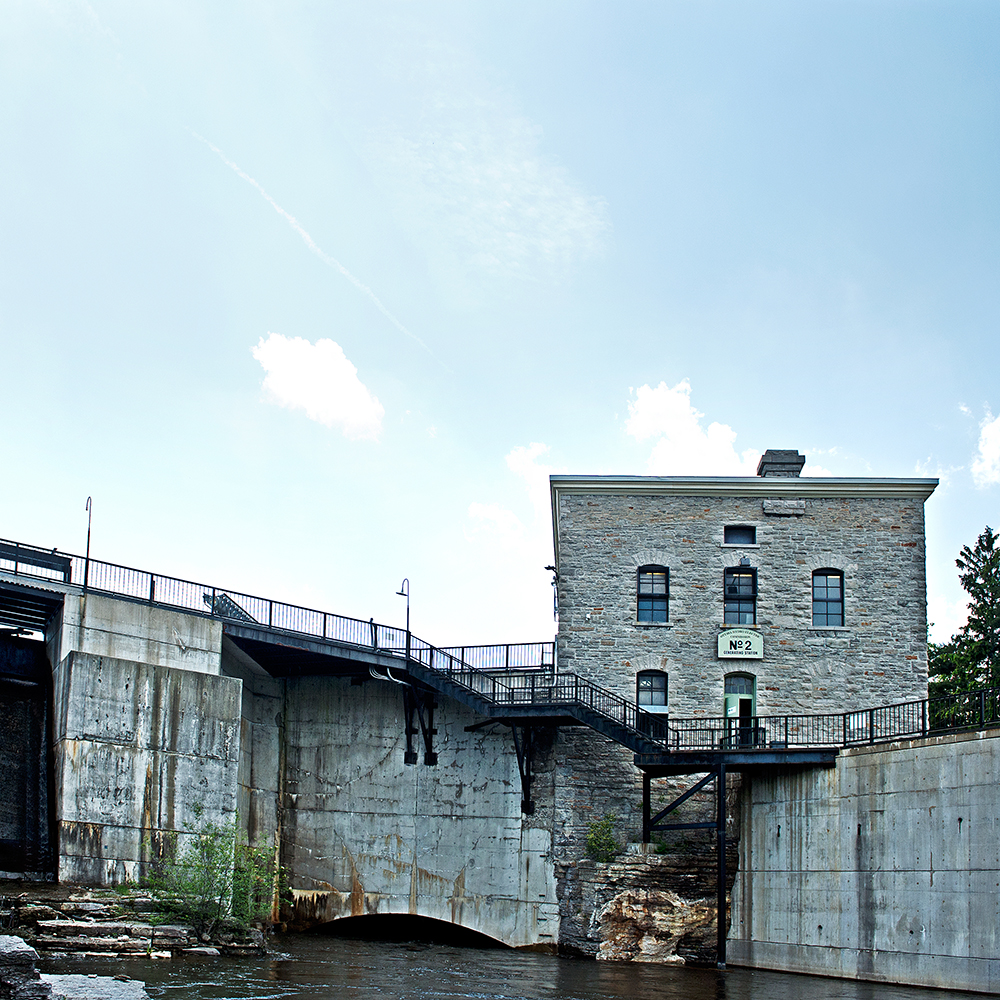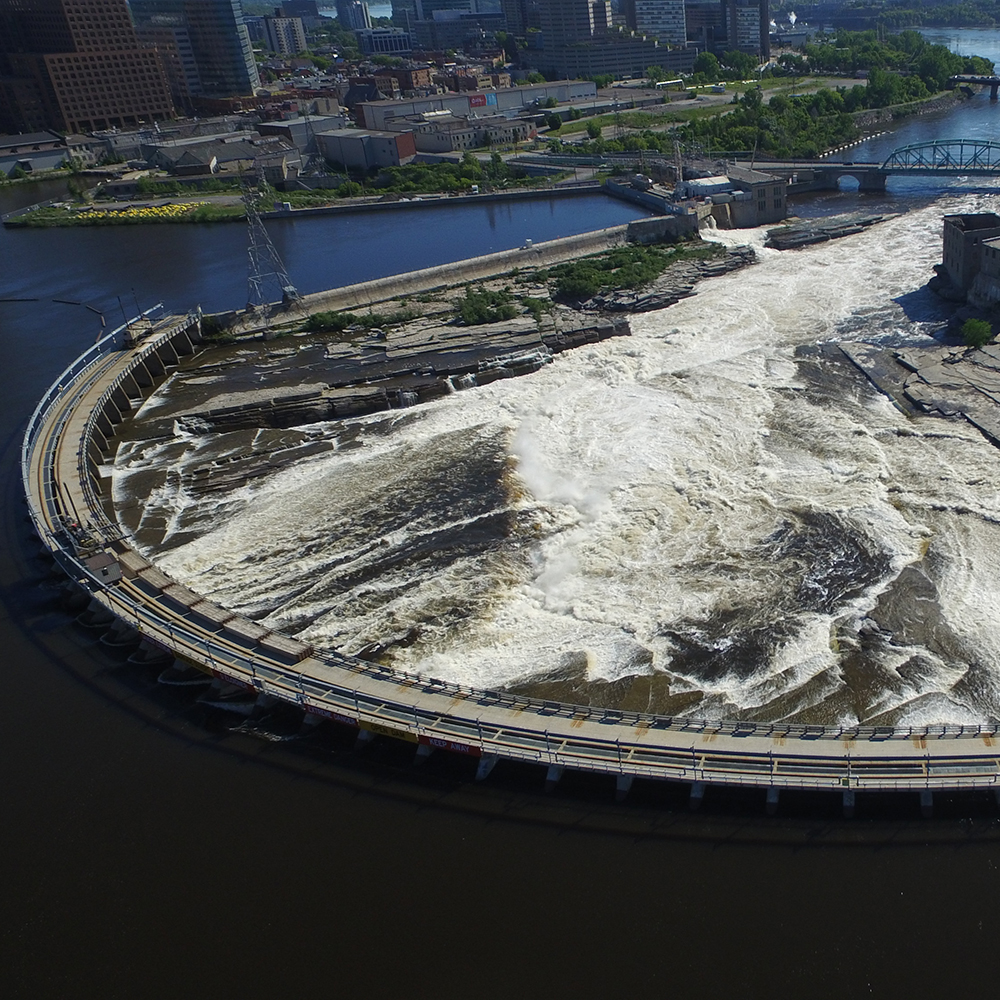Planning a visit?
Here’s what you need to know
Discover the enchantment of Chaudière Falls.
Whether you’re seeking adventure, tranquility, or simply a breathtaking view, Chaudière Falls promises an unforgettable experience for all who visit.

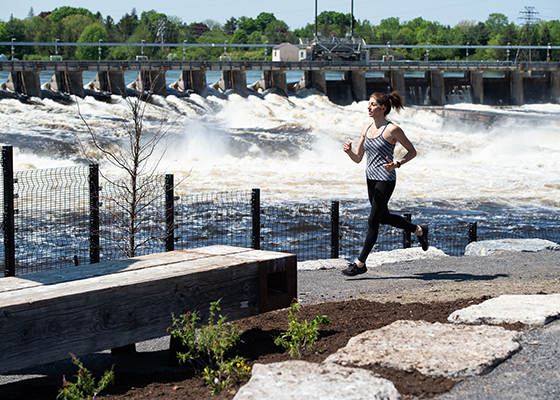
Hidden beauty in the heart of the capital
Closed to the public for over a century, it’s time to explore the beauty of Chaudière Falls. Explore and unwind in this park space with stunning views of the Ottawa River and Chaudière Falls.
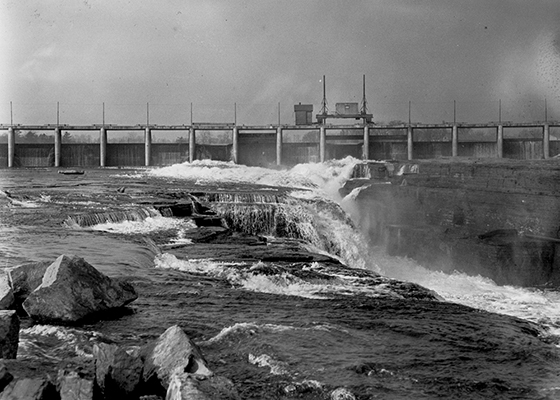
History lives here
Chaudière Falls has a storied history, serving as an important meeting place for Canada’s First Nations, traveled by early European explorers and central to Bytown’s lumber boom.

Generating clean, green power
From Canada’s oldest operating hydro station to a new state-of-the-art underground facility, the six hydroelectric generating facilities on site generate clean energy to power local homes and businesses.

A Sacred Place
Algonquin Anishinaabe and other First Nations consider Chaudière Falls a sacred site, due to its significance as a meeting place, portage site, and trade route. Here, Indigenous travellers made offerings of tobacco to the river to try to ensure a safe journey.
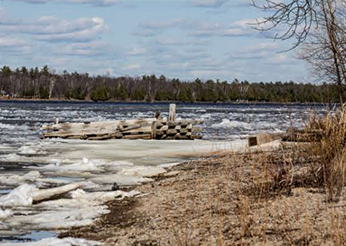
The Ottawa River
Canada’s 13th-longest river, it forms the border between Ontario and Quebec for most of its length. Early explorers such as Champlain and Brûlé used it as a highway into Canada’s interior. Without the river the Algonquins called Kichi Sibi – the Great River – Ottawa would not be what it is today.
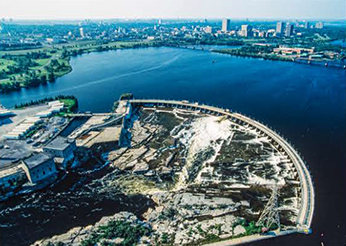
Chaudière Falls
Due to the cauldron-like shape of the original falls, and the spray rising from the churning water, the Algonquin First Nation called Chaudière Falls “Asticou,” usually translated as “kettle” or “boiling water.” Thus, early French explorers called it “Chaudière,” which means “kettle.”
OUR INDUSTRIAL PAST
Powering Bytown’s Future
Chaudière Falls energized Ottawa’s industrial boom of the mid-1800s by providing water power for the vast complex of lumber mills and factories that once occupied the shoreline of the Ottawa River.

Booth Mill Box Shop & Powerhouse
Two of a handful of buildings to survive the Great Fire of 1900, they were part of J.R. Booth’s lumber empire. These lumber barons fueled the prosperity and growth of Ottawa.

Booth Street Bridge
The original Chaudière crossing was the first bridge between Upper and Lower Canada (now Ontario and Quebec). The current bridge, built by the Dominion Bridge Company, opened in 1919.

Canada’s oldest hydro generator
On nearby Victoria Island is Generating Station No. 2 – commissioned by E.H. Bronson in 1891. The heritage-designated building was restored and refurbished in 2001.
GREEN POWER
The future is clean energy. The future is now.
Every day, we work to be a leader in clean, green, sustainable power generation. Chaudière Falls has six run-of-the-river hydroelectric facilities harnessing the natural flow of the river, while producing no waste and emitting no carbon dioxide.
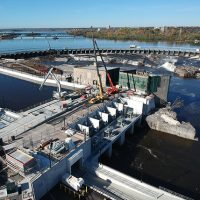
Powerhouse
Energized in 2017, the new five-storey powerhouse is built entirely below ground. Its four turbines generate enough clean electricity to power 20,000 homes and reduce carbon dioxide emissions by about 115,000 tonnes each year.
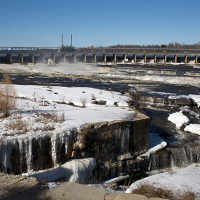
Ring Dam
Built between 1907 and 1909, the Ring Dam regulates water flow through the Chaudière complex. It has been staffed 24 hours a day, 365 days a year, ever since it went into service.
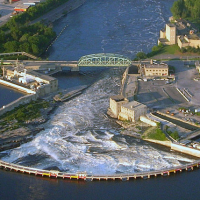
Eco-friendly design
This modern generating station is designed to protect wildlife. It is the first station on the Ottawa River to install a bypass system and an eel ladder to help endangered American eels migrate safely.
Experience Chaudière Falls Virtually
Take a tour of one of Ottawa’s most stunning landmarks that’s home to several hydroelectric generating stations that help power our nation’s capital.
Share your experience
#chaudierefalls
